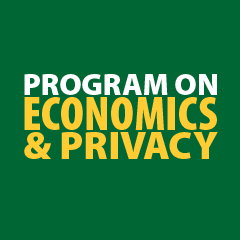The report, titled “Private Litigation Under the California Consumer Privacy Act – CCPA Report Update,” examines the private actions filed under the CCPA from April 1, 2021 through December 31, 2021.
Executive Summary
The California Consumer Privacy Act (CCPA) went into effect on January 1, 2020. Broadly, the CCPA is designed to protect consumers’ privacy by making the collection and use of consumer data more transparent, and giving consumers the right to prevent companies from sharing their data with third parties. Although these core privacy provisions are enforced exclusively by the California Attorney General, the CCPA also provides a private right of action when a business’s failure to implement “reasonable security practices and procedures” results in the theft of personal information.
In 2021, the Program on Economics & Privacy issued its initial report, “Private Litigation Under the California Consumer Privacy Act,” which examined private CCPA cases filed from its effective date (January 2020) through the first quarter of 2021. This new Report provides data on private actions filed under the CCPA from April 1, 2021 through December 31, 2021, and highlights developments in cases covered in the 2021 Report.
Please click here to read the report.

